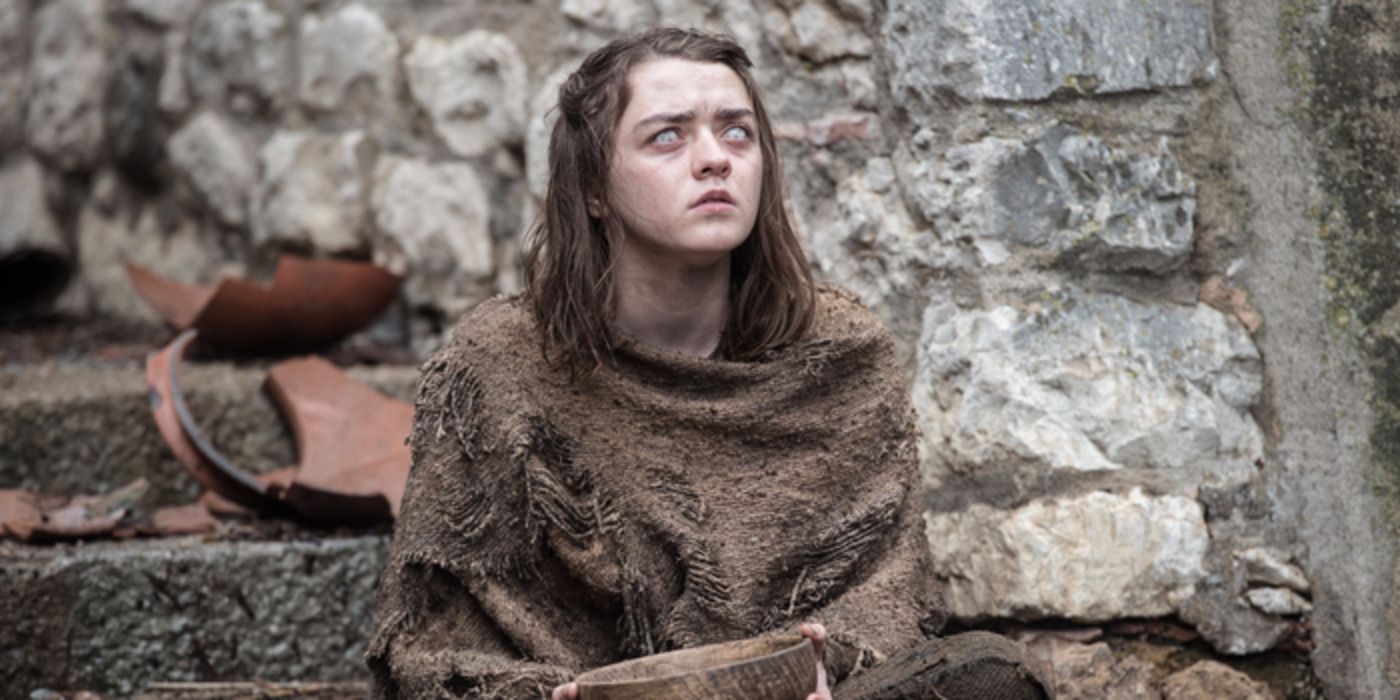Spoiler Alert: Spoilers follow for key plot points in the first six seasons of Game of ThronesOver half a decade after Game of Thrones ended, debates continue to rage over its… let’s just say, controversial final season. While it’s hard to find many who will defend its home stretch, and in particular the terrible finale, it remains a point of contention if it truly was bad enough to entirely taint the legacy of what was once the biggest show on TV. Of course, the fact that fans are still talking about it undermines the claim that the series has disappeared from pop culture.
Generally, it’s accepted that Game of Thrones peaked with its third and fourth seasons, which were largely faithful to the books, became spottier in quality as creative liberties started to be taken, and crashed and burned when they completely overtook George R.R. Martin. Indeed, the show’s fifth season was (at the time) its most uneven by far, with several of the storylines spinning their wheels, most notably Arya Stark’s. That being said, there’s a popular fan theory that could have potentially added some depth to that arc.
Did ‘Game of Thrones’ Go Full ‘Fight Club’?
In the fifth season of Game of Thrones, Arya Stark travels to the mysterious House of Black and White, where she intends to train to become an assassin serving the Faceless Men. Her mentor is a young woman known only as the Waif, who proves to be a strict teacher and often subjects Arya to harsh punishment.
There also seems to be something otherworldly about the Waif. Consider how she always seems to know where Arya is at all times and can almost instantly detect a lie from her. At one point, she details her expansive backstory to her pupil, only to hint that it was (at least partially) false. Even more intriguingly, only Arya and fellow assassin Jaqen H’ghar directly interact with her onscreen.
These subtle details led to a 2016 fan theory posted on Reddit. The user suggested that Arya’s storyline was Game of Thrones paying homage to the famous twist from Fight Club, and that the Waif was a figment of her imagination. As he theorized, when Arya drank water upon her arrival at the House of Black and White, a dissociative identity disorder manifested in the form of the Waif, who wanted to kill the “inner Arya” and become “no one.”
He also posited that this was why every time Jaqen entered the temple, he asked the Waif to leave: he only wished to speak to Arya without her darker personality present.
Does the Arya/Waif Theory Hold Water?
Admittedly, there’s a lot about this fan theory that’s tempting to believe. For one thing, it gives more weight to Arya’s arc, one of the low points of the fifth and sixth seasons. After seeing most of her family being murdered, she became increasingly consumed by revenge against her enemies, which was a huge part of why she joined the Faceless Men. Fighting against her darker impulses and desire to become “no one,” rather than just her training mentor, feels less like a convenient plot point and more like a natural progression for Arya as a character.
But it arguably would improve things on a plot level as well. In Season 6, when Arya fully turns against the Waif, some of the more shocking moments are hard to believe. In particular, when Arya attempts to return to Westeros, only to face a brutal stabbing from the Waif, it was puzzling how no one else in a public space seemed to notice what was happening, and it was even more surprising that Arya recovered so quickly. Additionally, their final encounter in the season left things ambiguous; while Arya presumably killed the Waif and added her face to the Hall of Faces, the absence of any onscreen action initially had viewers speculating if the roles were actually swapped.
That being said, even if this theory were actually true, it might raise even more questions. Consider Arya’s initial arrival at the House of Black and White: in one of her first encounters with the Waif, she sees her teacher cleaning corpses. It stands to reason that Arya wouldn’t have been so far in her training to have already killed her marks. Similarly, another scene shows her being punished after prematurely claiming that she’s “no one”: how could she already know this wasn’t an acceptable answer?
Nonetheless, it remains an enticing theory, since the creative team has never commented on it, and the storyline’s conclusion leaves things open enough that fans could still speculate if they wanted to. Especially since it happened so soon after the show’s shocking reveal about Hodor, a split-personality twist wouldn’t have been completely out of the blue. At the very least, it’s clear proof that, despite the insistence of many that Game of Thrones’ botched ending wiped out its dominant place in pop culture, it still remains a hotly discussed show.
Game of Thrones seasons 1-8 are available to stream on HBO Max.
Source link


















Add Comment